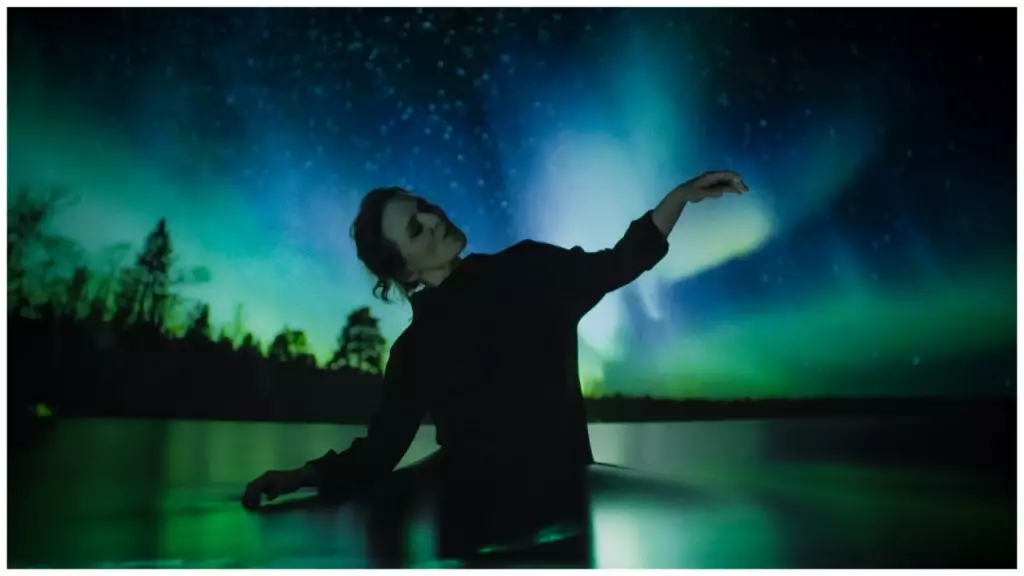The film “Miss Geraldine Flower” emerges as a curious blend of biography and artistry, enveloping viewers in the intriguing life of a woman whose identity remains shrouded in enigma. While its narrative begins with relics of the past—letters, photographs, and telexes uncovered after Miss Flower’s death—it transcends conventional storytelling by transforming into a song cycle performed by Icelandic artist Emilíana Torrini. Directed by the talented duo Iain Forsyth and Jane Pollard, the film also echoes the unique narrative style established in their previous work, the Nick Cave documentary “20,000 Days on Earth.” This analysis delves deep into the reasons behind the cult-favorite status the film is likely to achieve, drawing upon its experimental format and the profound essence of its subject.
The Inspirations Behind the Film
At the forefront of the film’s narrative is the complex figure of Geraldine Flower, largely unknown to the public but profoundly significant to the film’s producer, her daughter Zoe Flower. Herein lies the charm of the documentary: it elevates a non-celebrity’s life to a central focus while exploring the themes of intimacy and the human experience. The film ingeniously utilizes a nostalgic approach—presenting a 1970s vibe that fosters a deeper understanding of the era and its nuances while prompting reflections on Geraldine’s life as an artist and a mother.
What stands out in this article is the art of letter-writing, described poignantly as “a personal, private, permanent connection.” The film grapples with the forgotten significance of letters, which serve as portals into the past and reflections of who we were. Emilíana Torrini articulates this beautifully; her portrayal of emotional engagement through written words contrasts sharply with today’s fast-paced, digitized communication. It compels the audience to consider the weight of words and the intent carried within personal correspondences, an introspective element that adds complexity to the narrative.
One of the most striking aspects of “Miss Geraldine Flower” is its visual storytelling. Caroline Katz’s portrayal of Geraldine Flower captures the essence of reminiscence, seated in a timeless bistro—an apt setting for contemplating life. Interspersed with Torrini’s haunting melodies and the choreography crafted by Kate Coyne, the film evolves beyond mere biographical data into a poignant artistic exploration of self. The collaboration of sound and movement creates an atmosphere where emotions resonate deeply, presenting a unique storytelling experience.
Torrini’s lyrics, while appearing straightforward, invite immersion and connection—a nod to the experimental nature of the film. Drawing on techniques reminiscent of William S. Burroughs, the fragmented narratives push viewers to explore meanings beyond face value, encouraging introspection. Together with creative choreography, the music becomes an essential lifeblood of the film, turning moments of silence into tangible emotions.
One of the captivating themes woven throughout the film is the allusions to espionage, leaving the audience questioning the nature of the letters portrayed on screen. Are they mere tokens of love, or do they hold coded secrets, entwined in shades of mystery? The interplay of these elements stimulates curiosity, inviting discussions about the layered meanings behind the text—the clandestine nature of relationships during the tumultuous times of the ’60s and ’70s reshapes our understanding of intimacy.
Rather than presenting answers about Geraldine’s relationships, the film tantalizingly hints at broader truths while leaving space for interpretation. This ambiguity adds to the magnetic pull of the narrative, fostering engagement as viewers dissect each interaction and relationship portrayed. The enigma surrounding Miss Flower’s life reflects universal themes of longing, identity, and connection.
Ultimately, “Miss Geraldine Flower” positions itself as a timeless piece of artistic expression—where biography and evocative musicality intermingle to create something profoundly intimate and magical. By exploring Geraldine’s life through a series of visually delightful, poetic sequences, the film becomes an experience that reverberates within viewers long after the credits roll. Its celebration of letter-writing, personal connections, and the fluidity of identity in memory crafts a compelling narrative that speaks to the human condition. As audiences are led through a sensory journey filled with questions rather than answers, they are reminded that sometimes, the allure of mystery is an invitation to reflect and connect in ways words cannot describe.

Leave a Reply